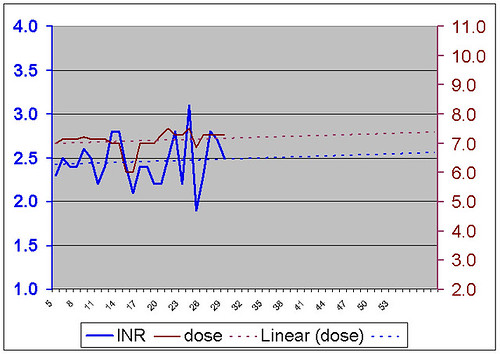Phil
Well-known member
Hi all,
I seem to be having trouble maintaining my INR levels. Post surgery when I was not exercising much my levels were pretty consistently within range. However, since exercising much more my levels seem to be very low. The last four tests results have been 1.7, 1.4, 1.6 and 1.4, despite my diligence with being consistent with my green vegetable intake. Have others experienced this? I have only been on warfarin for 10 weeks so maybe it's just a teething issue.
Your comments appreciated.
Phil.
I seem to be having trouble maintaining my INR levels. Post surgery when I was not exercising much my levels were pretty consistently within range. However, since exercising much more my levels seem to be very low. The last four tests results have been 1.7, 1.4, 1.6 and 1.4, despite my diligence with being consistent with my green vegetable intake. Have others experienced this? I have only been on warfarin for 10 weeks so maybe it's just a teething issue.
Your comments appreciated.
Phil.

























